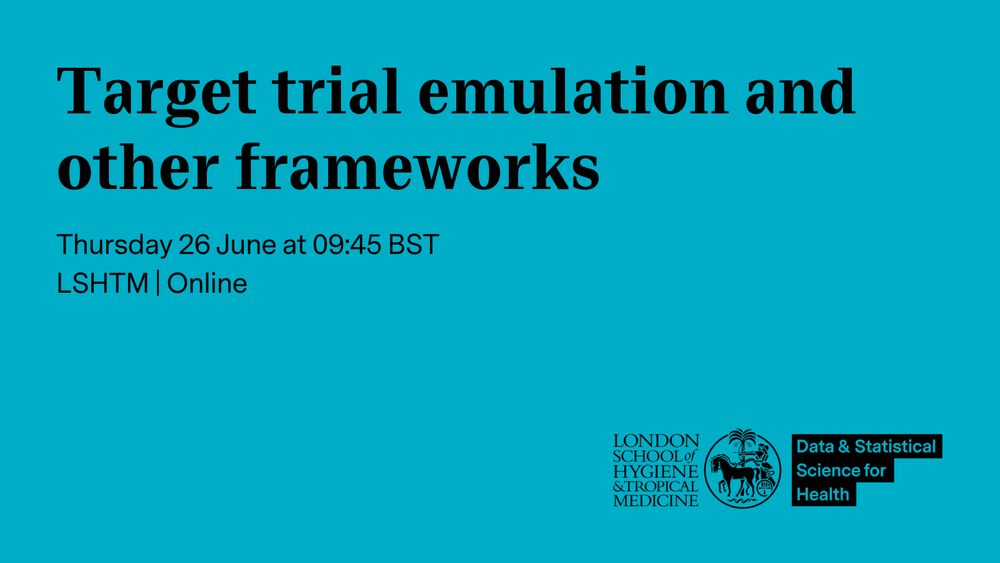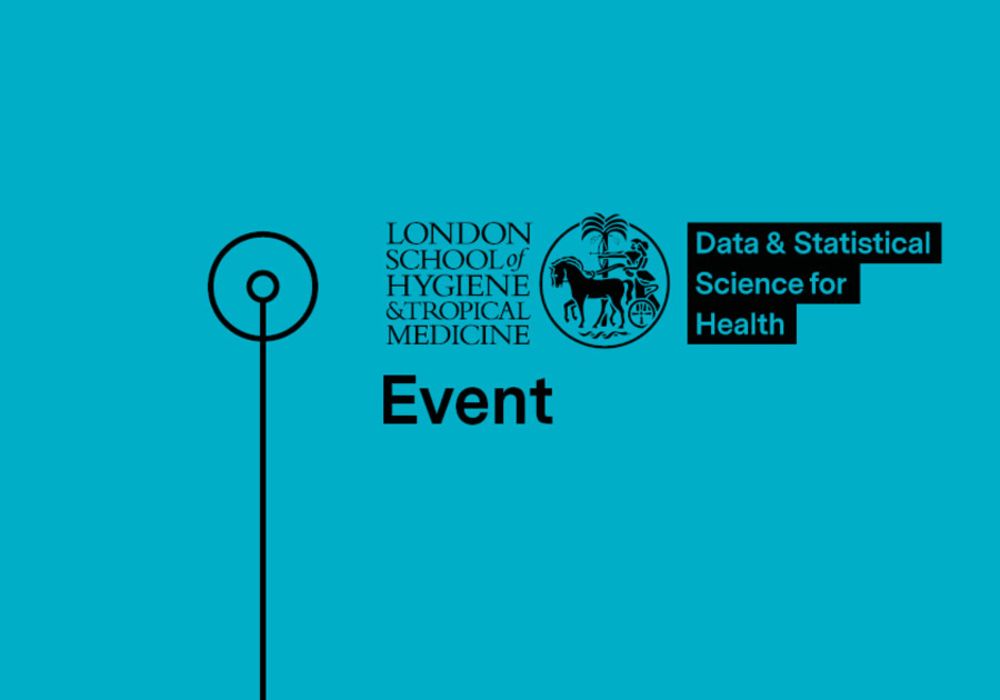Jonathan Bartlett
@jonathan-bartlett.bsky.social
980 followers
140 following
37 posts
Biostatistician, London School of Hygiene & Tropical Medicine. Blogging at thestatsgeek.com
Posts
Media
Videos
Starter Packs
Reposted by Jonathan Bartlett
Reposted by Jonathan Bartlett
Nan van Geloven
@gelovennan.bsky.social
· May 19

PhD Candidates Causal machine learning – Performance assessment of causal predictive algorithms | LUMC
Do you want to work on challenging problems within causal inference and contribute to algorithms that support treatment decisions for individual patients? As PhD candidate causal machine learning at t...
www.lumc.nl
Reposted by Jonathan Bartlett
Reposted by Jonathan Bartlett
Reposted by Jonathan Bartlett
Reposted by Jonathan Bartlett
Ruth Keogh
@ruthkeogh.bsky.social
· Apr 24
Reposted by Jonathan Bartlett
Alejandro Schuler
@aschuler.bsky.social
· Mar 31

Powering RCTs for marginal effects with GLMs using prognostic score adjustment
In randomized clinical trials (RCTs), the accurate estimation of marginal treatment effects is crucial for determining the efficacy of interventions. Enhancing the statistical power of these analyses ...
arxiv.org
Reposted by Jonathan Bartlett
The EuroCIM
@eurocim.bsky.social
· Mar 11








